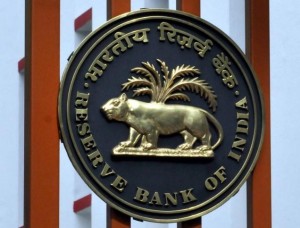In this blog post, Saanvi Singla, , a student of University Institute of Legal Studies, Panjab University gives a brief overview of Non-Banking Financial Companies (NBFCs), a fast emerging form of financial company, and she also lays down the types of NBFCs which are operating in India.
What is an NBFC?
A Non-Banking Financial Company (NBFC) is a company certified under the Companies Act, 1956 which is engaged in the various businesses such as loans and advances, acquisition of shares/stocks/bonds/debentures/securities issued by Government of India or any local authority or any other type of marketable security of the same nature, insurance business, leasing, chit fund business, hire or/and purchase, but it does not include any institution whose main business is that of agricultural activity, industrial activity, sale or purchase of any goods (other than securities) or providing any services and construction/purchase/sale of immovable property. A non-banking company which has the prime business of receiving deposits under any such scheme, arrangement in the lump sum form or installments by the way of contributions or in any such manner, is known as Non-Banking Financial Company[1].
Types of NBFCs
The NBFCs that are operating in India fall in one of the following broad categories.
-
Asset Finance Company (AFC)
An Asset Finance Company is a financial institution which deals in financing physical assets supporting productive/economic aspect of the field, such as automobiles, tractors, Generator sets, earth lathe machines, moving and material handling equipment, moving on own power and industrial machines used for general purpose. Principal business for this function is defined as the aggregate of financing real/physical assets supporting economic activity and income arising from that place is not less than 60% of its total assets and total income respectively.
-
Investment Companies
An Investment Company is a company that deals with acquisition of stocks, shares, debentures, bonds, debentures or securities as well as a company engaged in loans and advances business as an NBFC. It rules out an institution whose main business is of agricultural or industrial nature; or sale, purchase or construction of an immovable property[2].
-
Loan Company
Loan Company is a company which carries on its main business by providing finance in the form of loans or advances or otherwise for any activity that is different from its own. These types of companies are usually small partnerships which obtain funds in the form of deposits from the general public and give loans to individuals such as wholesale and retail traders, small-scale industries and people who are self-employed. These companies collect fixed deposits from the general public by offering high rates of interest and give loans to other people at a relatively higher rate.
-
Infrastructure Finance Company (IFC)
A company can be deemed as an Infrastructure Finance Company if it has net owned funds of at least Rs. 300 crore and has expanded 75% of its total assets in infrastructure loans. It has to have a credit rating of A or above and has a CRAR of 15%[3].
-
Infrastructure Debt Fund: Non-Banking Financial Company (IDF-NBFC)
A Debt Fund means an investment pool in which main holdings are fixed income investments. The Infrastructure Debt Funds are used to imbue funds into the infrastructure sector. The significance of these funds remains in the fact that the infrastructure funding is not only disparate but also severe in comparison to other types of funding because of its enormous requirements, lengthy gestation period and long term requirements. In India, an IDF can be set up in the form of a trust or a company. If the IDF is opened up as a trust, it will be a mutual fund and will be regulated by SEBI. Such funds will be called IDF-MF. If the IDF is opened up as a company, it would be considered as an NBFC and will be regulated by the RBI. They will be known as IDF-NBFC[4].
-
Non-Banking Financial Company-Factors (NBFC-Factors)
NBFC-Factor is a non-deposit taking institution that engages in the prime business of factoring. The financial assets in such a business should comprise of at least 50% of its total assets and its income derived from the factoring business which is not supposed to be less than 50% of its gross income.
-
Gold Loan NBFCs in India
Over the last few years, gold loan NBFCs have witnessed an increase in the Indian financial market, owing primarily to the recent period of increase in the price of gold and ensuing increase in the demand for gold loan by all sections of the society, especially the poor and the middle class to make both the ends meet. Though there are a lot of NBFCs offering gold loans in India nowadays, about 95% of the gold loan business is being handled by three main Kerala-based companies, viz, Muthoot Finance, Manapuram Finance, and Muthoot Fincorp. Expansion of gold loan NBFCs depends on various factors such as Asset Under Management (AUM), the number of branches, the number of customers, etc. The growth of gold loan NBFCs has occurred due to increase in the size of their balance sheet and their physical presence that necessitate increasing their reliance on public funds including bank finance and non-convertible debentures.
-
Residuary Non-Banking Companies (RNBCs)
Residuary Non-Banking Company is a type of NBFC which has the main business of receiving of deposits, under any scheme, arrangement or in any other style and not being an investment, Asset Financing, Loan Company. These companies are required to sustain investments as per the directions of RBI, in addition to liquid assets.
Difference between NBFC and Bank
NBFC lends and makes investments and hence their activities are similar to that of banks; however there are a few differences which have been given below:
- NBFC cannot accept demand deposits whereas banks can.
- NBFCs do not form any part of the payment and settlement system and do not have the power to issue cheques drawn on it whereas the banks are part of both the systems.
- Deposit insurance facility of Deposit Insurance and Credit Guarantee Corporation is not available to the depositors of any NBFC, unlike in case of a bank.[5]
- NBFC are not allowed to issue Demand Drafts like banks.
- NBFC cannot indulge primarily in agricultural or industrial activity.
- NBFC cannot be involved in the construction of an immovable property
- While banks are incorporated under Banking Companies Act, the NBFCs are incorporated under the Company Act, 1956.[6]
Laws applicable to NBFCs
RBI governs NBFCs in India. The main section that governs NBFCs under RBI Act is Section 45-I(a). A company incorporated under the Companies Act, 1956 and wants to start a business as a non-banking financial institution as defined in Section 45 I(a) of the RBI Act, 1934 should satisfy the following conditions:
- That the company is supposed to be registered under Section 3 of the Companies Act, 1956
- That the company should have a minimum Net Owned Fund of ₹ 2 Crore. (The minimum Net Owned Fund (NOF) required for specially designed NBFCs like CICs NBFC-Factors, NBFC-MFIs is separately mentioned)
The Bank has issued detailed directions for the smooth functioning of the NBFCs, vide Non-Banking Financial (Deposit Accepting or Holding) Companies Prudential Norms (Reserve Bank) Directions, 2007, Non-Systemically Important Non-Banking Financial (Non-Deposit Accepting or Holding) Companies Prudential Norms (Reserve Bank) Directions, 2015 and Systemically Important Non-Banking Financial (Non-Deposit Accepting or Holding) Companies Prudential Norms (Reserve Bank) Directions, 2015. Applicability of regulations varies based on the acceptance of the deposits or systemic importance of the NBFC.
Conclusion
NBFCs have turned out to be fast emerging forms of financial companies. They have proved to be an important part of the Indian financial system. It is an assorted group of institutions (other than commercial and co-operative banks) performing commercial arbitration in various ways, such as accepting deposits hire purchase, leasing, making loans and advances, etc. They raise funds from the general public, directly or indirectly, and then lend it to the ultimate spender. They advance loans to small-scale industries, wholesale and retail traders and self-employed persons of a very diverse nature. Thus, they have extended and varied the range of products and services that are being offered by the financial sector. Gradually, they are being acknowledged as complementary to the banking sector due to their simplified procedures, customer-oriented services, adaptability, timeliness in meeting the credit needs of specified sectors, attractive rates of return on deposits, etc[7].
Footnotes:
[1] https://www.rbi.org.in/Scripts/FAQView.aspx?Id=92
[2] http://articles.economictimes.indiatimes.com/2011-01-27/news/28430787_1_equity-shares-framework-investment-companies
[3] http://www.gktoday.in/blog/types-of-non-banking-financial-companies-nfbc/
[4] http://www.gktoday.in/infrastructure-debt-fund-2/
[5] http://www.kcctutorials.com/difference-bank-nbfc/
[6] http://www.differencebetween.com/difference-between-nbfc-and-vs-bank/
[7]. http://www.archive.india.gov.in/business/business_financing/non_banking.php
 Serato DJ Crack 2025Serato DJ PRO Crack
Serato DJ Crack 2025Serato DJ PRO Crack













 Allow notifications
Allow notifications


